The Good Practice Framework
The Good Practice Framework sets out principles and operational guidance to support higher education providers in England and Wales. It draws on our broad experience in handling complaints, and informs the way we consider complaints.
The Framework is intended to support providers to develop and follow fair processes, and to be a tool to help any provider to evaluate their own processes. It can also be a useful resource for students and those who advise them as guidance on what good complaints and appeals processes should look like.
The Framework currently has six sections: Handling complaints and academic appeals, Delivering learning opportunities with others, Supporting disabled students, Requests for additional consideration, Disciplinary procedures, and Fitness to practise. The overarching Principles apply across all sections of the Framework. There is also separate guidance to explain what we mean when we talk about bias.
We are grateful to our Good Practice Framework Steering Group and everyone else who has contributed to the development of the Framework.

CONSULTATION: Handling reports of harassment and sexual misconduct
We consulted on a new section of the Good Practice Framework on handling reports of harassment and sexual misconduct.
Good Practice Framework - Sections
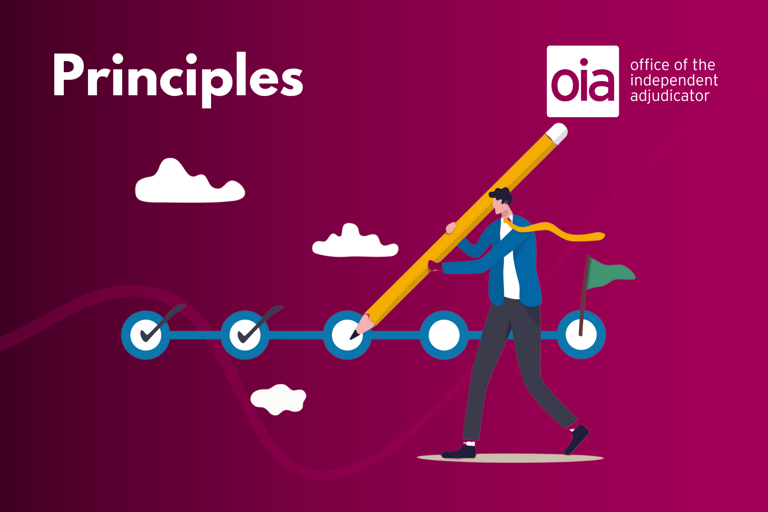
Good Practice Framework: Principles
The ten key principles that apply to all of the processes covered in the Good Practice Framework
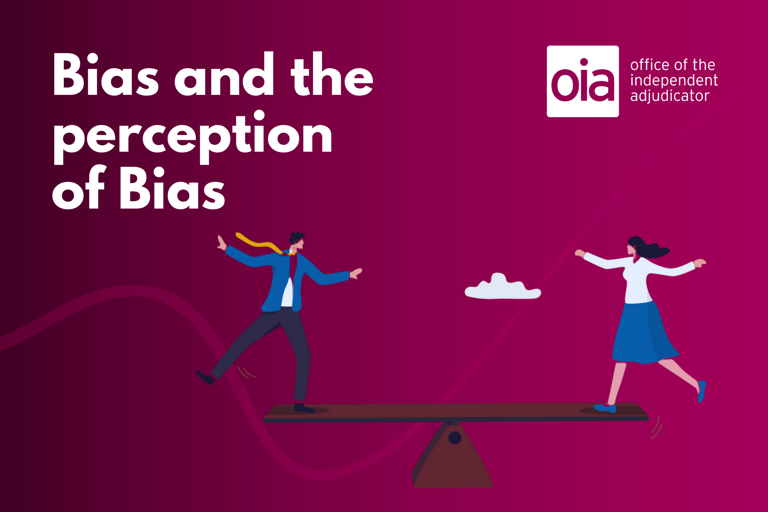
Bias and the perception of bias
Guidance on how providers have a duty to act fairly and that decision-making should be unbiased and should be seen to be unbiased
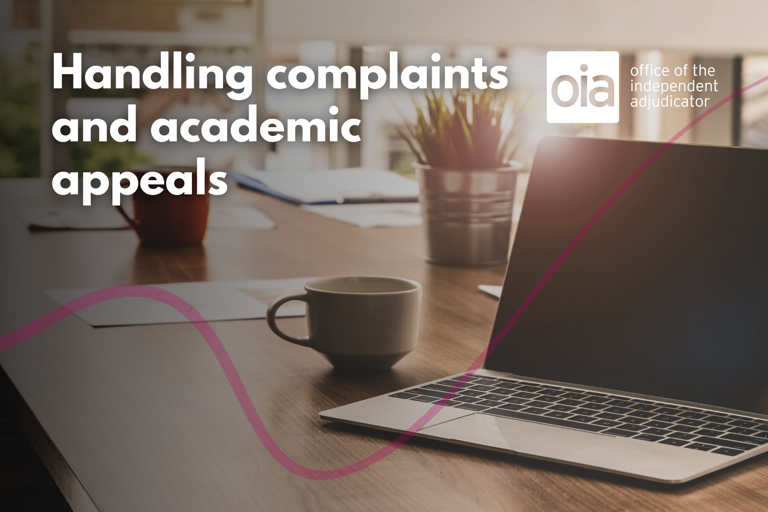
Handling complaints and academic appeals
This section of the Good Practice Framework is a guide to handling complaints and academic appeals in higher education in England and Wales
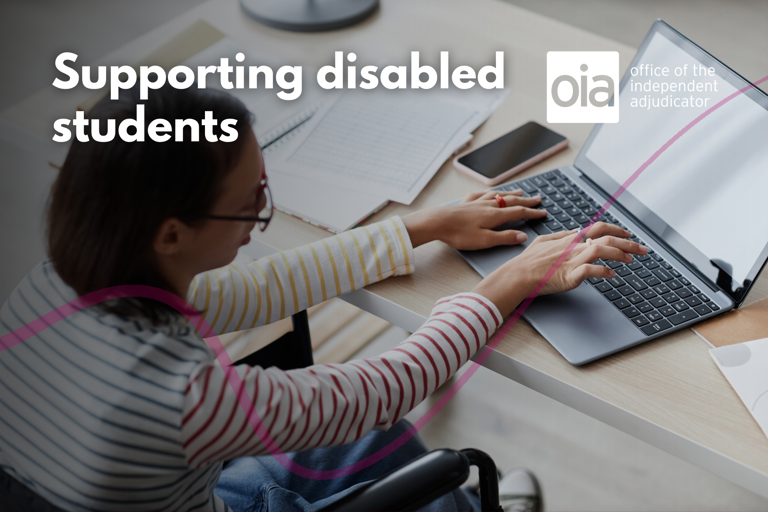
Supporting disabled students
Guidance on supporting disabled students, including removing obstacles to learning, supporting students before and during their studies, and what to do when things go wrong
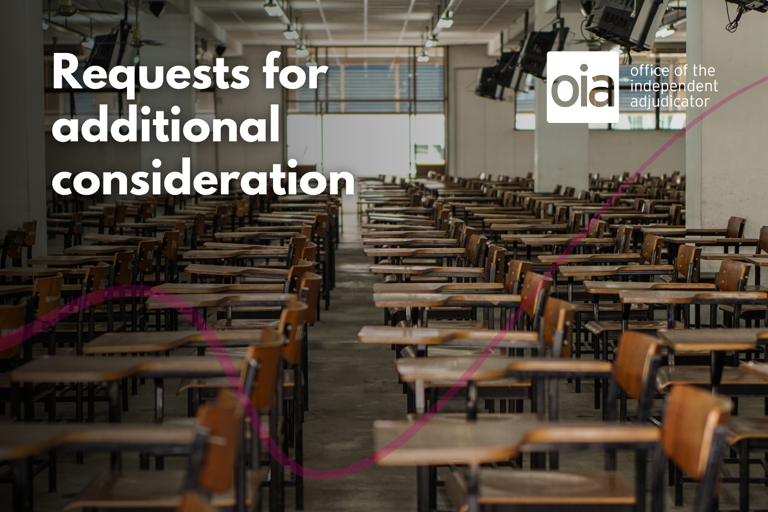
Requests for additional consideration
Guidance for providers when considering students' requests for additional consideration

Delivering learning opportunities with others
Guidance for providers to consider when handling complaints and academic appeals when working with other providers or other awarding bodies
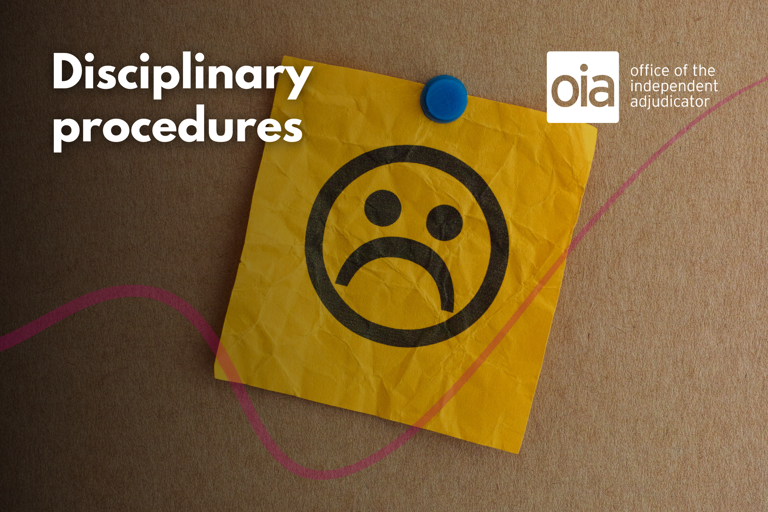
Disciplinary procedures
Guidance for providers in designing academic and non-academic disciplinary procedures and in handling individual cases
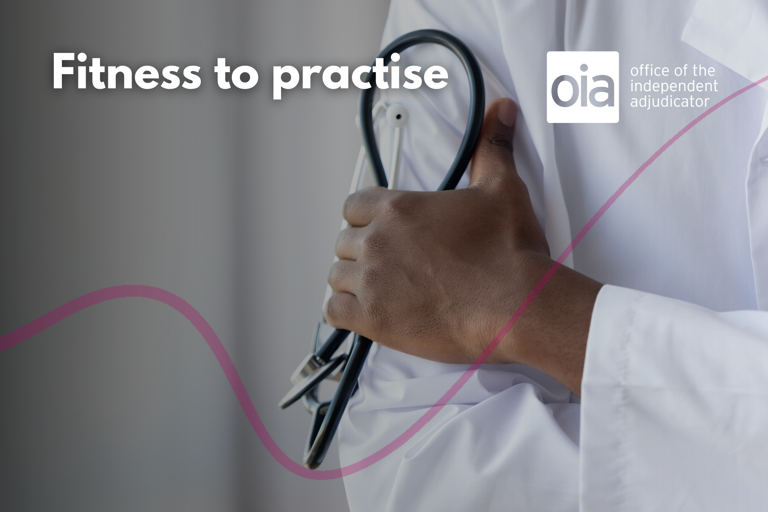
Fitness to practise
Guidance for providers in designing fitness to practise procedures and in handling individual cases
New section - Harassment and sexual misconduct
This year we have started work on a new section of the Good Practice Framework. We are using the learning from our complaints and our engagement with the wider sector to develop good practice guidance for providers on designing and operating procedures to consider harassment and sexual misconduct.
Many of the principles of dealing with casework related to harassment and sexual misconduct are already expressed in some of the other sections of the Good Practice Framework, but we are bringing this guidance together in one place and exploring the application of the principles in the specific context of dealing with cases related to harassment and sexual misconduct.
We have completed a number of very informative discussions with providers, student representative bodies and other sector bodies, and we are now in consultation with our steering group.
The steering group is:
Good Practice Framework - Section tree
Development of the Good Practice Framework
Each section of the Good Practice Framework has been developed with the help of our Steering Group, which has members from providers, student organisations and other higher education sector bodies. Sections are published in draft for public consultation, with submissions typically received from providers, student representative bodies, other higher education bodies, stakeholders and interest groups, and the final versions incorporate feedback we receive. We are very grateful to the members of our Steering Group, our Higher Education Advisory Panel, our Disability Experts Panel and all those who have contributed to the development of the Framework.
We keep the Framework under review and we update and add to it from time to time.
The Good Practice Framework: Handling complaints and academic appeals
This first and main section of the Good Practice Framework is a guide to handling complaints and academic appeals in higher education in England and Wales. It sets out operational guidance to support providers in areas including timeframes, record-keeping, early resolution, what to do when more than one process might apply, complaints about student representative bodies, complaints about behaviour of staff or other students, and group complaints.
The current version of the Handling complaints and academic appeals section was published in 2022. The section was first published in December 2014.
Supporting disabled students
This section of the Good Practice Framework sets out good practice guidance for providers to consider when supporting disabled students.
It includes guidance on how providers can remove obstacles to learning, and on supporting students before and during their studies, as well as on what to do when things go wrong.
The guidance was first published in 2017.We are grateful to our Disability Experts Panel for their help with developing this section.
Requests for additional consideration
This section of the Good Practice Framework sets out good practice guidance for providers when considering students' requests for additional consideration (often called the “mitigating”, “extenuating” or “special circumstances” procedures, or “factors affecting performance”).
This section was published at the end of 2020.
Disciplinary procedures
This section of the Good Practice Framework sets out good practice guidance for providers in designing disciplinary procedures and in handling individual cases.
It covers:
- academic disciplinary procedures, for dealing with academic misconduct such as plagiarism, contract cheating, cheating in examinations or formal assessments, falsifying data, breaching research or ethics policies, and collusion; and
- non-academic disciplinary procedures, for dealing with misconduct such as antisocial, abusive or threatening behaviour, sexual misconduct, violence, harassment, hate crimes, behaviour likely to bring the provider into disrepute, damage to property or abuse of facilities, causing a health or safety concern, and other behaviour that might also be a criminal offence.
The section was first published in October 2018.
Fitness to practise
This section of the Good Practice Framework sets out good practice guidance for providers in designing fitness to practise procedures and in handling individual cases. It is intended to help providers treat their students fairly, not to provide answers to what are often complex questions that involve professional judgment.
The section should be read alongside the Disciplinary procedures section, which sets out principles of procedural fairness. However, a fitness to practise process is distinct from a disciplinary process. The purpose of a fitness to practise process is not to punish the student for wrongdoing. It is to ensure the safety of the student and those around them, including members of the public, and to safeguard public confidence in the profession. The process should be supportive even when the outcome is that the student can't continue with their studies.
This section was first published in 2019.
Delivering learning opportunities with others
This section of the Good Practice Framework sets out additional good practice guidance for providers to consider when handling complaints and academic appeals in the context of delivering learning opportunities in higher education with others. This guidance is for providers working with other providers or other awarding bodies, to deliver higher education provision. It does not set out prescriptive guidelines for every type of arrangement.
The section was first published in 2017 and reviewed in February 2024.
More information
Archive Documents
Archived documents for the good practice framework, including consultations and previous versions

